- Home
- A. S. Byatt
Sugar and Other Stories Page 15
Sugar and Other Stories Read online
Page 15
Where is the plotting and over-plotting I wrote of? It is coming, it is proceeding up Lower Regent Street, it is stalking Mrs Smith, a terror by noonday. It is not, aesthetic pride compels me to add, a straying terrorist’s bullet, or anything contrived by the IRA. Too many stories are curtailed by these things, in life and in literature.
In the interim, Mrs Smith read the newspaper placards. “Famous Novelist Dies.” She bought an early paper and it turned out that it was E. M. Forster who was dead. He was, or had been, ninety-one. A long history. Which, since 1924, he had not recorded in fiction. “Only connect,” he had said, “the prose and the passion.” He had been defeated apparently by the attenuation of the world he knew, the deep countryside, life in families in homes, a certain social order. Forster, much more than Lawrence, corresponded to Mrs Smith’s ideal of the English novel. He wrote civilized comedy about the value of the individual and his responsibilities: he was aware of the forces that threatened the individual, unreason, belief in causes, political fervour. He believed in tolerance, in the order of art, in recognizing the complicated energies of the world in which art didn’t matter. In Cambridge, Mrs Smith had had a friend whose window had overlooked Forster’s writing desk. She had watched him pass mildly to and fro, rearranging heaps of papers. Never writing. She honoured him.
She was surprised therefore to feel a kind of quick, delighted, automatic survivor’s pleasure at the sight of the placards. “Now,” she thought wordlessly, only later, because of the unusual speed and accuracy with which she was thinking, putting it into words, “Now I have room to move, now I can do as I please, now he can’t overlook or reject me.” Which was absurd, since he did not know she was there, would not have wished to overlook or reject her.
What she meant, she decided, pacing Jermyn Street, was that he was removed, in some important sense, by his death, as a measure. Some obligation she had felt, which tugged both ways, to try to do as well as he did, and yet to do differently from him, had been allayed. Because his work was now truly closed into the past it was now in some sense her own, more accessible to learn from, and formally finished off. She passed the church again, thinking of him, agnostic and scrupulous. She envied him his certainties. She enjoyed her own difference. She thought, “On the day that E. M. Forster died I decided to write a long novel.” And heard in the churchyard a Biblical echo. “In the year that King Uzziah died I saw also the Lord …”
He had written, “The people I respect most behave as if they were immortal and society was eternal. Both assumptions are false: both of them must be accepted as true if we are to keep on eating and working and loving and are to keep open a few breathing holes for the spirit.”
Mrs Smith was still exalted. A consuming passion streamlines everything, like stripes in a rolled ribbon, one weaving: newsprint, smudged black lines on the placard, Wren church, Famine Relief posters, the order of male living in Jermyn Street shop windows, shoes mirror-bright, embroidered velvet slippers, brightly coloured shirts, the cheese shop with its lively smell of decay, Floris the perfumer with the ghost of pot-pourri. And for the ear the organ, heard faintly, playing baroque music. A pocket of civilization or a consumers’ display-area. She came to Grima the jeweller, a recent extravaganza, expensively primitive, huge, matt, random slabs of flint-like stone, bolted apparently randomly to the shop-frame, like a modern theatre-set for an ancient drama, black and heavy, Oedipus, Lear, Macbeth. And in the interstices of these louring slabs the bright tiny boxes of windows — lined with scarlet kid, crimson silk, vermilion velvet. The jewels were artfully random, not precision polished, but fretted, gold and silver, as stone or bone might be by the incessant action of the sea. And the stones — huge, glowing lumpen uneven pearls, a pear-shaped fiery opal, a fall of moonstones like water on gold mail — were both opulent and primitive, set in circlets or torques that might have come from the Sutton Hoo ship, a Pharaoh’s tomb, the Museum of Modern Art. Windows, frames, Mrs Smith thought, making metaphors of everything, out of the library window I saw the national flag and summer trees, in here is the fairy cavern and all the sixties myths, and in the tailor was Forster’s Edwardian world of handmade shirts and slippers. The windows order it. But it is not disorderly. Even the names — Turnbull and Asser, Floris, Grima — can work in a Tolkien-tale, a realist novel, or a modern fantasy. It is all there. There is time.
And then the man, who had turned the corner into Jermyn Street, plucked her by her sleeve, called her by her name, said how delighted he was to see her. She took time to recognize him: he had aged considerably since they last met. He was not a man she considered herself to know well, though at their rare meetings he behaved, as now, as if they were old and intimate friends. His history, which I shall now tell, was in most ways the opposite of Mrs Smith’s, given that most histories of the university-educated English would appear very similar to a creature from another planet or even from Japan, Brazil or Turkey. Mrs Smith and Conrad had been to the same university, attended the same parties, had the same acquaintances and one or two friends in common in the worlds of education and the arts in London in 1970. Conrad had studied psychology whereas Mrs Smith had studied English literature. He had made passes at Mrs Smith, but he made passes at most people, and Mrs Smith did not see that as a token of intimacy. He had been, and remained, a friend of friends.
In Jermyn Street, as always before, he radiated boundless enthusiasm, as though there was no one he would rather have met at that moment, as though chance, or Providence, or God had answered his need, and hers almost certainly too, by bringing them haphazardly together. He leaped about on the pavement, a heavy man with a new, pear-shaped belly propped on his jeans like a very large egg on an inadequate egg-cup. He had a jean jacket over a cotton polo-neck through which rusty specks and wires of hair pierced here and there. He leaped with a boyish eagerness, although he was a middle-aged man with a bald brow and crown, and long, kinked, greasy fringes of hair over his collar. She particularly noticed the hair in the first moments. As an undergraduate he had had a leonine bush of it which gave him presence.
“Come and have a cup of coffee,” he said, “I have so much to tell you. You are the ideal person.”
In the past she would, out of fear, or distaste for being cornered and having her knee pressed or stroked, have refused this invitation. In the past, she had refused more of his invitations than she had accepted. There were resilient moods in which the writer in her was prepared to fend off the patting, stroking and breathing for the sake of information Conrad purveyed about things she knew too little about. Psychology, for instance. It was Conrad who had told her about the effects of experiments in total sensory deprivation, men suspended in lightless baths of warm liquid so that sight, and the sense of the body and then the sense of time and the self were annihilated. It was Conrad who had said that there were unrevealed numbers of volunteer students, whose personalities had disintegrated forever in this bodiless floating. Mrs Smith was curious about what held the personality together, what constituted the self. Conrad, whose life experience was varied, told her also, when she could bear to be told, about forms of bullying and torture, and about experiments on the readiness of ordinary men to inflict pain under orders. Mrs Smith was extensively curious but lacked the journalist’s readiness to ask questions. Conrad’s talkativeness was, in its way, a godsend.
But on that June day, she went to have coffee because of the music. She felt particularly warm to Conrad because of the music.
The story of the music was, is, a plot almost needing no character. All that need initially be known about Conrad to tell the story of the music is that he was a man of extraordinary nervous, physical and mental energy. He was not still, he did not stop, he was perpetually mobile. He bedded women with an extravagant greed and need which Mrs Smith found sensuously unattractive but interesting to be told about. He had married a rich and beautiful wife, very young, but all other women interested him. He liked activity: he had taken his academic psychological skills into the
army, into the prison service, into commerce. He had an interest in advising television advertisers. As I said, he was to Mrs Smith a friend of friends, and in her early days of childbearing she had heard from friends tales of Conrad’s restless activity. He had set out and joined in the Hungarian uprising. He had spent his honeymoon in the Ritz, three weeks without getting out of bed, he had been heard of as accompanying a filming expedition to Central New Guinea, to study cannibals, he had several children by actresses, au pair girls, students. He had been very busy. He had had a routine medical examination for a job with another film company working abroad and had been discovered to have tuberculosis. He had been sent to a sanatorium, and the friends had not seen him for several years. His wife had left him. All this filtered through friends to Mrs Smith, quietly running her house, feeding her children, reading George Eliot and Henry James.
In the sanatorium, Conrad had, in his enforced stillness, had a vision. He had seen that his life was finite, that it came only once, that a man must decide what was the most important thing to him and pursue that, and that only, with all his power. The most important thing in life to Conrad was, he decided, music. In the sanatorium that seemed clear to him. When he came out, gaunt and quiet, he had resigned all his lucrative work and had enrolled as a music student, a student of composition. He had married a second quiet wife. Meeting him at that time, a man submitted to a new discipline in middle age for the sake of an ideal vision, Mrs Smith had felt a mixture of envy and cautious scepticism. He was shining with certainty. The routine pass was couched almost as an invitation to a religious laying-on of hands. Mrs Smith rejected it, and went home to a flooded washing-machine, a threatening letter from a released anarchist drug-pusher to her husband, and the reflection that in the past much great art had been produced by the peculiar vitality and vision afforded by TB, which could now of course be cured, to our human gain and aesthetic loss.
She had seen Conrad once again between then and now, when he had knocked on her door and said she must come to lunch. The lunch had been expensive — mussels, turbot, zabaglione, wine. Mrs Smith had scrutinized Conrad, who ate and drank with passion. He ate all her new potatoes and all his, glistening with hollandaise sauce, and left an empty sauceboat. He wiped his lips with a damask napkin: his face also glistened with exertion and butter: his second wife, he said, had left him, taking the children. He was paying a lot of alimony. He had had a motet played at a Contemporary Music Festival in Leamington Spa. He was working for a cigarette company, devising ways of suggesting that cigarettes produced sexual pleasure, without this being apparent. The decline of lipstick-wearing amongst women made this harder. Once you could use a glamorous scarlet lip, wet-looking. Now it had to be clean and healthy. He wasn’t happy about this; he had seen too much in the lung ward in the sanatorium. But there was the alimony. Did she know any good modern love poems he could set to music? He wanted to write for single voices, very plain. He had met an extraordinary Israeli singer. With an extraordinary range. Did women write love poems? Did she know women ate mussels because they reminded them of sex? Was it the marine smell, or the hint of the embryonic? Would she care for a brandy? An armagnac? A ticket for Stockhausen at the Festival Hall? The nature of our concept of musical sound, musical form, was being radically changed, as never before. He was engaged, too, in research about how to interest women in fortified wines. Of course, physiologically speaking, they couldn’t take much. Up-market port and lemon. Class drink preferences were not wholly determined by money. Would she like a cigar? He rubbed her knee with his. Big and hot. She dodged efficiently.
All the same, there was the music. He had been in extremis, and had put music first.
They sat in front of cappucinos in an unassuming coffee bar. Now she was near him, she saw that he looked ill. There was thick beard stubble, his face was patterned by broken capillary tubes, his eyes were veined, his neck tendons stood out. His shoulders were sprinkled with dandruff and traced by fallen hairs.
“How’s the music?” asked Mrs Smith.
“Marvellous. Wonderful. New. Never better. You look radiant. You look so lovely. It’s marvellous to see you, looking so lovely. Not a day older — not a day — than when we walked along the Backs together and sat side by side in the University Library.”
Mrs Smith did not recall that they had done either of these things. Perhaps her memory — which she must now trust to be so sharp — was at fault.
“I’ve just been thinking how pleasant it is to be middle-aged.”
“You aren’t middle-aged. You’re as old as you feel. That’s true, not just something to say. I’m young, you’re young, we can do anything. I’ve never in my whole life felt so young, so healthy.”
There were panels of sweat down his nose, in the crease of his chin, on his clammy brow. The ends of his fingers were dead white and his fingernails had dirt under them. He smelled. Across the new coffee smell he smelled of new sweat and old sweat under it, mortality.
“Tell me how the music is.”
“I told you, it’s fantastic. Every day, new discoveries. Revolutionary techniques. New machines. A new range of possibilities. I can’t get over how fresh you look.”
Mrs Smith knew that she had grey hairs, a marked fan of lines in her eye-corners, a neck better covered, a body loosened by childbearing. She did not attract wolf whistles. She was not generally considered to expect or hope that advances would be made.
“Don’t say that, I’m thinking how happy I am to be irretrievably middle-aged. Because of time, because I’m in time. Listen — I’ve decided to write a long book — about my time, the time I’ve lived and won’t have again.”
It was the first time, possibly, she had volunteered a serious confidence in their acquaintance. It was because of the music.
“By the time we’re middle-aged I can tell you they’ll have discovered how to arrest the ageing process forever. They’re working on it. It’ll be quite possible soon to stop death, to stop death in most cases. I assure you, I’ve gone into it. You deprive the body of the signals — hormone decrease, loss of calcium, those things — that trigger off ageing. There’s a political problem, they don’t want everyone to know, naturally, they haven’t solved the world population problem. But I have my sources of information. You trick your genes into working to perpetuate themselves in the body you’ve got, not a new one. It can be done. I had a vasectomy. No more kids, no more alimony, no more splurging my genes on other beings. Conserve. Perpetuate. Live. Don’t talk about middle age.”
“But I like it.” She wanted him, for once, to hear. “I’ve just discovered I practise a middle-aged art. Spread over time. Time’s of the essence.”
“There’s no such thing as time. Time’s an illusion. The new music knows that. It’s all in the present. Now. It isn’t interested in the past, or in harmony, or in keeping time, in tempo, any of all that. We’ve broken the idea of time and sequence. We play with the random, the chaotic. Einstein destroyed the illusion of linear time.”
“Not biological time,” said Mrs Smith, bravely, having heard these arguments before, though not from Conrad.
“Instantaneous and disposable sounds,” said Conrad, excited. “Always different, always now. Biological time’s an illusion too. Only the more complicated organisms die. Simple cells are immortal. We can reverse that. We must make a better world to live in. That’s what matters. We must survive. Can I trust you?”
Mrs Smith lowered her eyelids and said nothing. She expected a sexual confidence.
“I know I can trust you, that’s why I met you. These things are not fortuitous. I was followed here. I’m in danger.”
Mrs Smith did not know what to do with this introduction of espionage plotting. She continued to look non-committally intelligent, and to say nothing.
“There’s a dark man across there, across the street, with an evil umbrella. Don’t look now.”
Paranoia, said Mrs Smith’s mind. “Why?” said Mrs Smith, more neutrally.
&n
bsp; “I am carrying,” said Conrad, leaning forward across the formica table top, breathing stale smoke and sour fear in her face, “this folder of secret plans. It’s a matter of life and death. I’ve got to get them to the Israeli embassy.”
He laid a rubbed and filthy package before her, tied with various kinds of string, sprouting faded edges of xerox paper.

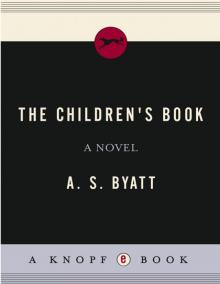 The Children's Book
The Children's Book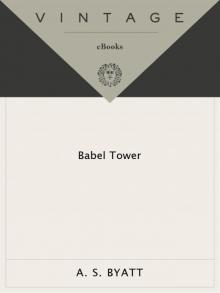 Babel Tower
Babel Tower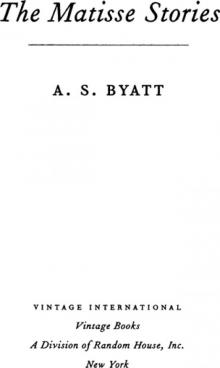 The Matisse Stories
The Matisse Stories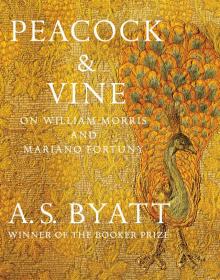 Peacock & Vine: On William Morris and Mariano Fortuny
Peacock & Vine: On William Morris and Mariano Fortuny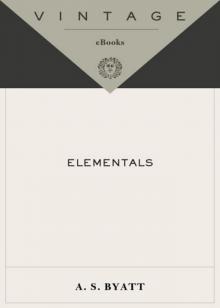 Elementals: Stories of Fire and Ice
Elementals: Stories of Fire and Ice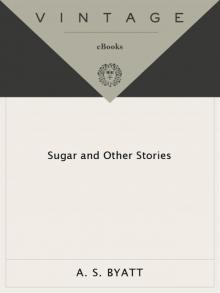 Sugar and Other Stories
Sugar and Other Stories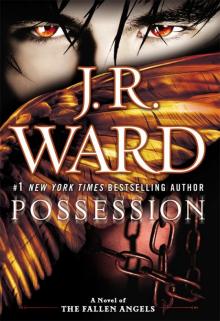 Possession
Possession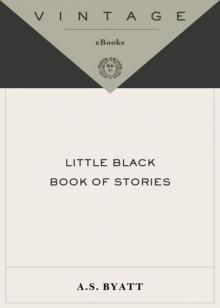 Little Black Book of Stories
Little Black Book of Stories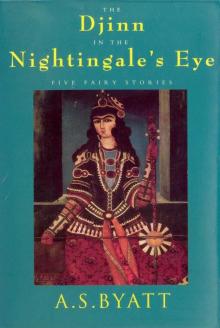 The Djinn in the Nightingale's Eye
The Djinn in the Nightingale's Eye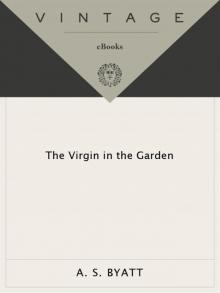 The Virgin in the Garden
The Virgin in the Garden The Game
The Game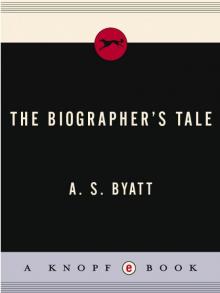 The Biographer's Tale
The Biographer's Tale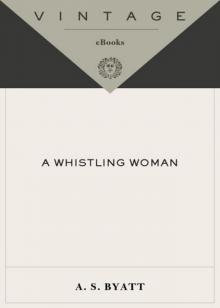 A Whistling Woman
A Whistling Woman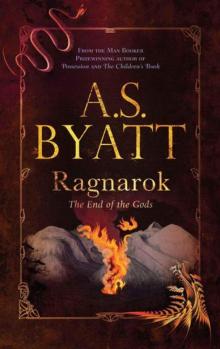 Ragnarok
Ragnarok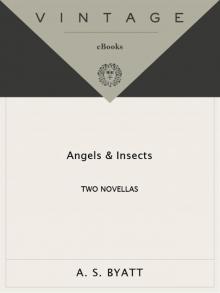 Angels & Insects: Two Novellas
Angels & Insects: Two Novellas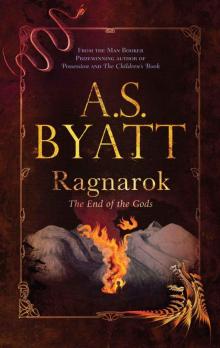 Ragnarok: the End of the Gods (Myths)
Ragnarok: the End of the Gods (Myths)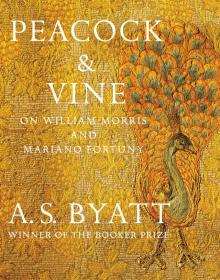 Peacock & Vine
Peacock & Vine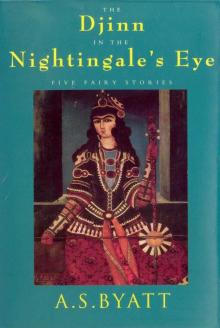 The Djinn in the Nightingale's Eye (Vintage International)
The Djinn in the Nightingale's Eye (Vintage International)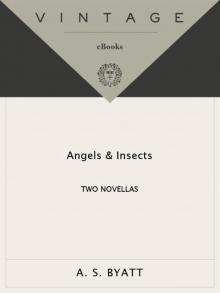 Angels and Insects
Angels and Insects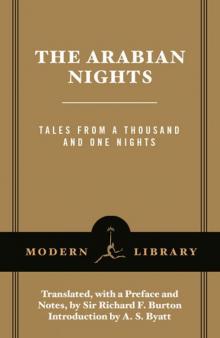 The Arabian Nights: Tales from a Thousand and One Nights (Modern Library Classics)
The Arabian Nights: Tales from a Thousand and One Nights (Modern Library Classics)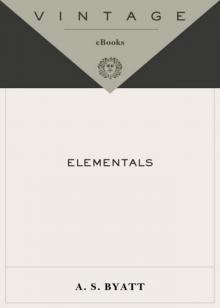 Elementals
Elementals